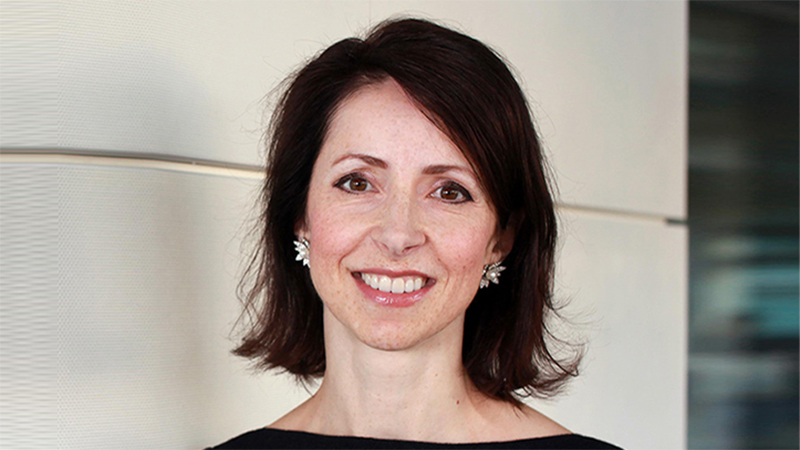By Baroness Helena Morrissey, chair of the Diversity Project
Is there a business case for diversity? As chair of the Diversity Project, you might be surprised I’m even asking this. But at this point, everyone should want to know with as much certainty as possible, whether arch DEI-sceptic, passionate proponent or somewhere in between.
For many years, those of us engaged on diversity initiatives have worked on the basis that the business case is strong – especially when it comes to diversity of thought. That confidence has been based on both anecdotal evidence and empirical research.
One of the main reasons I got involved is because I experienced the benefits of managing money at a company where the founder insisted that “no one has a monopoly on great ideas”. I never heard Stewart Newton utter the words ‘diversity,’ ‘equity,’ or ‘inclusion’ – but those were the foundations on which Newton Investment Management was built.
In the context of City traditions, that approach was groundbreaking. I joined Newton thirty years ago, the lowly number two on a two-person bond desk. On my very first day, people asked for my market views and seemed genuinely interested in what I thought – and the reasons why.
That was how things were at Newton. No one stood on rank or file, everyone was rated on the basis of our ideas, the quality of our analysis and ability to persuade. It wasn’t always a comfortable environment, but time and again, I saw the power of inclusive (read free-for-all) idea generation accompanied by robust challenge and debate in generating good returns.
Over a decade later, the global financial crisis put the nail in the heterogeneity coffin. Bank boards, described by the late Paul Myners as “a retirement home for the great and the good” had messed up, and regulators cited ‘groupthink’ as a key factor behind the failure of the Royal Bank of Scotland (RBS) and its disastrous takeover of ABN-Amro.
See also: Vulnerable clients: How can the unseen be seen by wealth managers?
There had been no challenge, no debate – and no diversity. Of the 18 RBS board directors, 17 were white men. That was the moment Labour peer Mary Goudie and I launched the 30% Club, a campaign for better gender balanced boards. At the time, women occupied less than 10% of board seats at UK plc companies. My argument was that a group that was composed of 90% men, all of similar age, educational and social backgrounds just couldn’t comprise the optimal board.
And while more women weren’t the whole solution, I did expect some benefits of cognitive diversity to follow with men and women – on average – bringing slightly different experiences, traits and behaviours to the table.
Meanwhile, I read – and cited – the reports that backed up FTSE 350 chairmen’s frequent assertion that better gender balanced boards were ‘better boards’. Landmark studies from Catalyst and McKinsey point to multiple benefits – including financial ones– when companies have at least three women on their boards.
These studies did not seek to prove causality and I didn’t think that mattered too much. It could be that women tended to join smarter companies, which in turn tended to be more welcoming and inclusive. Or perhaps women helped the companies become that way – not because they are better than men, just different. Complementary.
But doubt has now been cast on some of those studies. Several academic researchers claim they can’t replicate the results, criticising the methodology and the data sets. Instead, they suggest there needs to be proper ‘longitudinal’ research (where researchers repeatedly examine the same individuals or in this case companies to detect changes over time) and ‘causality-oriented’ research, where the extent and nature of cause and effect is analysed.
This is just one element in the now-politicised pushback against DEI. The specialist DEI industry that sprung up partly has itself to blame a) by becoming an industry, b) by often excluding or blaming powerful majority groups, c) by not engaging with the challengers, and d) by focusing too much on identity.
See also: #InspireInclusion: How can asset managers maintain momentum?
If the impression given is that people should be appointed and promoted based on ‘identity’ alone, it’s hardly surprising that the ‘anti-DEI’ movement has legs. Of course, many DEI efforts – including the Diversity Project, have taken a very different approach, but there is little appetite for nuance.
Shouting from opposite corners of a boxing ring doesn’t get anyone anywhere. Those of us who believe in the benefits of DEI (done right) should start back at the beginning, with a robust re-examination of the business case. If it transpires there is no business case, there is still a moral argument to open opportunities to under-represented people, but the issues would not be confused. And if there is a strong business case, backed up by academically rigorous, replicable research, that gives us both an opportunity and an imperative to reset how people perceive DEI.
The Diversity Project, which aims to improve diversity and inclusion in the investment industry, has launched a new research project to explore whether the cognitive diversity of an investment team and how it operates has a bearing on its investment performance. Critically, we do not want researchers to work backwards from the conclusion we hope for but to see what the study actually shows.
This is an invitation for academic researchers globally to propose a fresh, rigorous study supported both by funding and the convening power of the Diversity Project, whose member firms comprise 116 members, representing over £13 trillion in assets under management with over 85,000 employees.
Looking back, Stewart Newton gave myself and others the “license to disagree”. Similarly, our strategic decisions, including around DEI, will only benefit more when we question them and really seek to understand what works.






